| 1:30 - 2:00 PM | Introduction to Machine Learning |
|---|---|
| 2:00 - 3:00 PM | Demo: Convolutional Networks |
| 3:00 - 3:15 PM | BREAK |
| 3:15 - 4:00 PM | Demo: Unsupervised Learning with PCA |
| 4 - 4:30 PM | Demo: LSTM Networks |
Pre- and Post-conference Workshops Schedule
Pre- and Post- Conference Workshops attendance is open and free to all attendees. Separate workshop registration is not required, but some workshops are expected to have maximum allowed attendees. Therefore, to ensure your spot, please complete the workshop signup here.
Transcranial Direct Current Stimulation (tDCS): Advanced Theory and Hands-on Workshop
Thursday, July 28, 2022 | 10 AM - 4:30 PM
Directors: Adam J Woods, PhD, Helena Knotkova, PhD, Marom Bikson, PhD
Target Audience: This course is designed for clinicians and researchers in disciplines related to neurostimulation (such as medicine, nursing, neuroscience, bioengineering), and personnel involved in tDCS research and treatment.
Scope
This intensive one-day international workshop is dedicated to the design and implementation of tDCS in clinical and research settings. It provides an update on 2018 state-of-the-art comprehensive theoretical background and methodology, with presentations and discussions on the development of professional standards for safety, validity and reproducibility of functional outcomes in tDCS applications, as well as practical experience necessary to acquire the knowledge and skills for tDCS applications. This tDCS Advanced Theory and Hands-on Workshop distinguishes itself from other tDCS educational initiatives by offering extensive practical experience and an in-depth learning approach, including interactive lectures, facilitated discussion, demonstrations, hands-on step-by-step exercises. The Workshop utilizes versatile educational elements from the basic to expert level and covers the complex framework from neurophysiological research to clinical applications. It is expected that even individuals highly experienced in tDCS will benefit from the advanced and comprehensive training in the state-of-the-art technique. The Workshop promotes expertise in the field of noninvasive brain stimulation and focuses on building competencies in the following areas: Principles and mechanisms of tDCS, electrode preparation and montages, stimulation parameters, protocols and targeted outcomes, safety, tDCS current modeling and dose determination, good practices in tDCS delivery, tDCS clinical and research trial design and implementation, with specific methodologic considerations for HD-tDCS and conventional tDCS in institutional and home-based settings. Education and training will be provided by a seasoned highly experienced team. Previous practical experience with tDCS not required.

From Passive BCI to Neuroadaptivity
Monday, August 1, 2022 | 8:30 AM - 1 PM
Directors: Thorsten O. Zander, PhD, Sarah-Michelle Mehnert
Target Audience: This course is designed for c researchers in disciplines related to Neuroscience, Machine Learning, Artificial Intelligence, Psychology, Human Factors and Engineering
Scope
This workshop is designed to discuss the potential of direct communication from a human brain to a machine. The future of humanity depends to a large degree on what technologies we embrace, and what for. A major factor determining our use of technology is how well humans can communicate with it. Brain Computer Interfaces (BCIs) provided a new form of such communication that initially was used to send direct commands without the need of any muscular activity. In 2011, the definition of Passive BCIs paved the way for rethinking the use of BCIs by assessing information about the operators’ state, removing the need for intentional communication Passive Brain‐Computer Interfaces can assess information about changes in cognitive and affective state in real time and convey an interpretation of these states as implicit commands to a machine. The machine can then automatically adapt its own state to support a given task in the Human‐Machine System. Furthermore, by collating information about the user state with the task‐specific context and using methods from machine learning and artificial intelligence a user model can be generated that even reflects correlates of higher cognition [4]. The resulting Neuroadaptive Technology leads to a convergence of human and machine intelligence and enables a fundamentally new way of interaction with technology. This workshop will provide an overview of recent developments in pBCI and Neuroadaptive Technology. Furthermore, we will discuss insights about how we can elaborate our understanding of human neuroscience by interpreting pBCI methods by combining statistical machine learning with state-of-the-art methods from neuroscience. The approaches discussed have the potential to change the way we are affected by our interaction with technology and to redefine privacy, as machines automatically gain access to private information potentially without our consent or even without our awareness. We will also discuss resulting ethical considerations. Finally, we will demonstrate the use of a Passive BCI with a state-of-the-art EEG system.
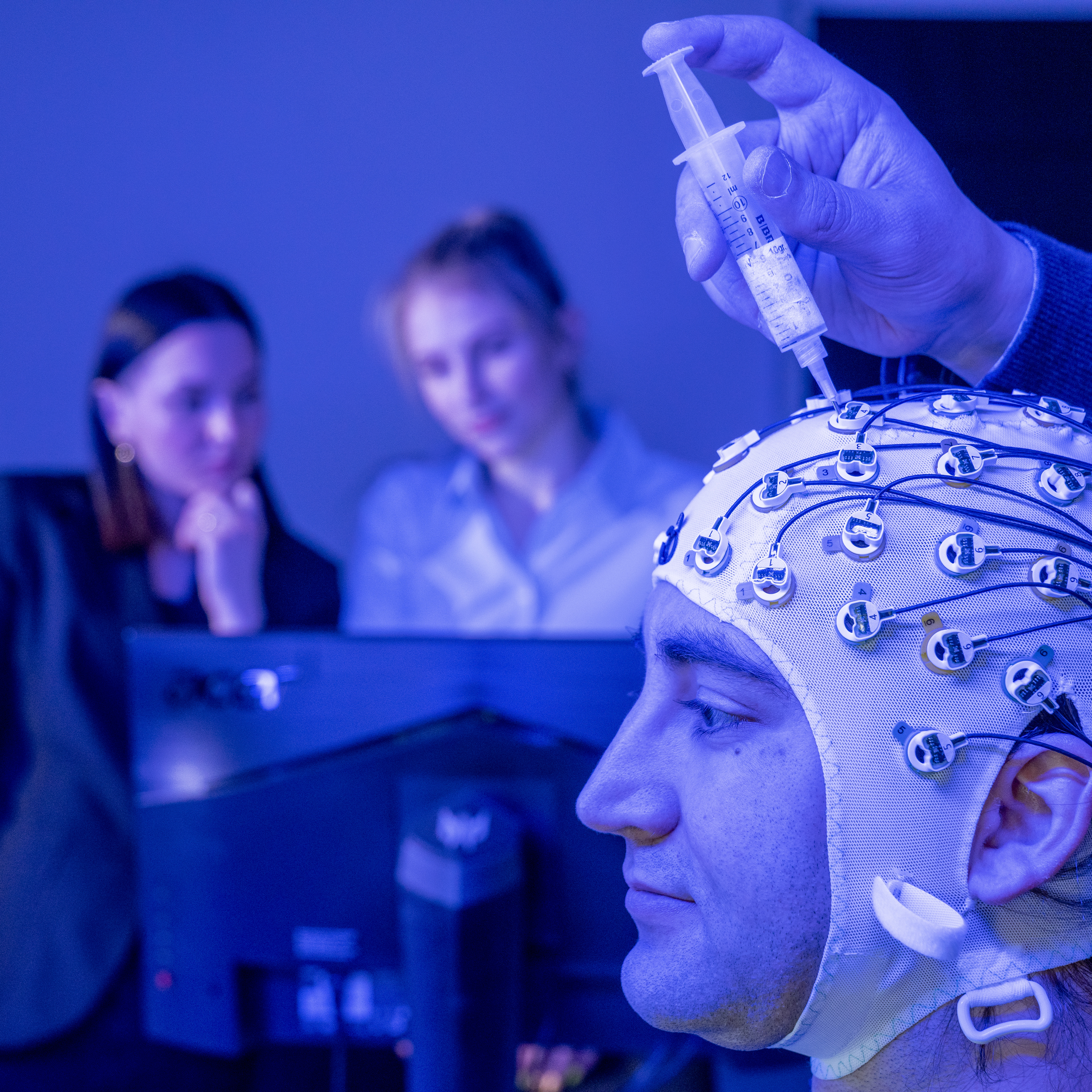
A primer on machine learning for physiological signals
Thursday, July 28, 2022 | 1:30 - 4:30 PM
Directors: Jacek Dmochowski, PhD
Target Audience: This course is designed for researchers with basic programming or signal processing background interested in a broad introduction to machine learning in brain science.
Scope
This short workshop will present a high-level overview of the fundamentals of machine learning: what it is, how it works, and how to successfully apply it to your data sets. The objective of the course is to instill a basic understanding of how computers learn from data, as well as some practical tips and tricks to optimize performance and avoid common pitfalls such as overfitting. We will discuss the specific case of analyzing physiological signals, and the constraints that physiological data imposes on the learning process. The majority of the workshop will be hands-on: we will interactively work through three examples of learning algorithms, each time analyzing a real-world EEG dataset. The demos are written in Jupyter Notebook, an interactive tool for running Python code.
It is highly recommended to bring a laptop to the workshop so that you can follow along with the demos.
Course materials
The code and data for the workshop are available here.
Requirements
Download and install the Anaconda distribution by following the instructions here.
Grab the code and data from this repository (you can clone the repo or just download the zip file, see the green "Code" button above) (Optional) to download the MNE package for visualizing scalp maps, please execute "pip install mne" from a terminal/command window at the location where the repository files are located on your system
Contact
If you experience difficulty with installation or accessing the workshop materials, please feel free to contact jdmochowski@ccny.cuny.edu (Jacek Dmochowski)
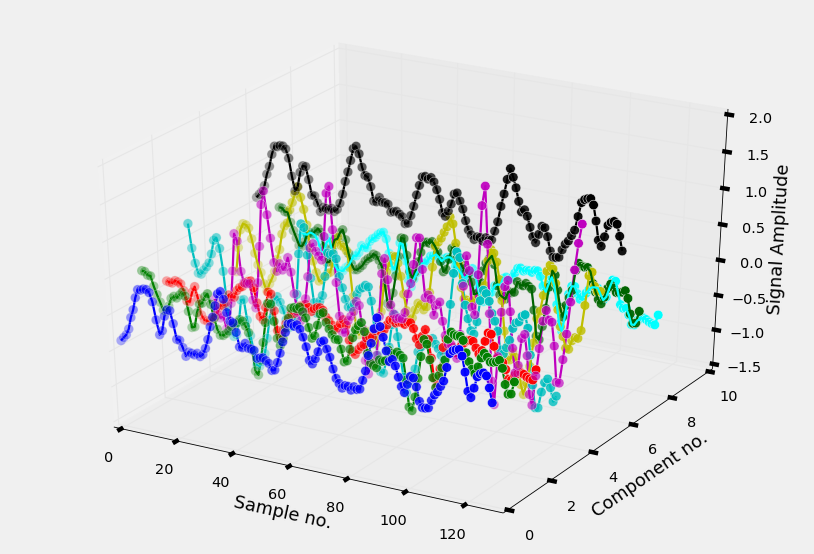
Neurotech Commercialization Workshop
Thursday, July 28, 2022 | 10:30 AM - 4:30 PM
Independently Organized
Scope
Neurotech Reports, announced that the third annual Neurotech Commercialization Workshop will take place on July 28, 2022. The one-day event, which was held on-line only in 2020 and 2021, will take place in New York City in 2022, in conjunction with the Neuroergonomics/NYC Neuromodulation conference, although there will be an option for on-line participation. The workshop will feature tutorial and interactive sessions with Neurotech Reports editors James Cavuoto, Jeremy Koff, and Jo Jo Platt. The morning agenda, free to advanced registrants, will feature tutorials on assessing the market, preparing a pitch deck, attracting early investment, and building a financial model. The morning will wrap up with an editorial roundtable that will field questions and explore new topics. Several small group workshops will take place in the afternoon, which will delve deeper into some of the topics introduced in the morning sessions.
Transcranial Magnetic Stimulation (TMS) in Neuroscience and Clinical Practice: Hands-on Workshop
Monday, August 1, 2022 | 9 AM - 12 PM
Directors: Eleanor Cole PhD, Laura Tabacof PhD Staff: Kevin Caulfield
Target Audience: This course is designed for clinicians and researchers, and other personnel involved in TMS research and treatment, who are interested in a general introduction or primer to TMS theory and practice.
Scope
This workshop provides an overview of the principles and state-of-the-art applications of transcranial magnetic stimulation (TMS). TMS is FDA-cleared for the treatment of major depression, migraine, and pre-surgical cortical mapping, and is widely used in basic and translational neuroscience research. Leading TMS experts including from Massachusetts General Hospital/Harvard Medical School will lecture on topics including device principles and types; comparison of features of the various FDA approved devices; description of the parameter space and the mechanisms of action; the neuroscience of TMS; research applications including multimodal combinations with MRI and EEG; clinical applications; principles of stimulus dosing; risks and contraindications; safety screening; regulations; and practical discussion on device use, experimental design and clinical management. There will be plenty of opportunities for formal and informal discussion with course faculty. The lectures will be followed by a hands-on training session to learn key TMS procedures such as motor threshold determination and coil targeting using neuronavigation. The hands-on session will comprise learning stations with different TMS devices and practical instruction with high instructor-to-participant number ratio. The workshop will be capped by an hour long discussion, questions, and answers session that will provide opportunity for addressing additional topics of interest to the participants.
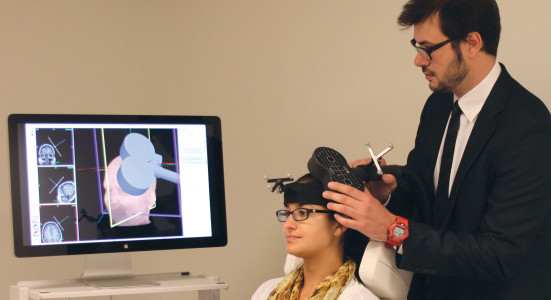
| 7:30 - 8:00 AM | Registration Opens (Breakfast Served) |
|---|---|
| 8:00 - 8:05 AM | TMS Basic Principles, Devices & Dose |
| 8:05 - 9:00 AM | TMS parameters and mechanism of action |
| 9:00 - 10:00 AM | Research Applications |
| 10:00 - 10:30 AM | Clinical Applications: Diagnostic |
| 10:30 - 11:00 AM | Clinical Applications: Therapeutic |
| 11:00 - 11:30 AM | TMS Tolerability & Safety Management, Regulations, Policies and Practical Considerations |
| 11:30 - 12:00 PM | Demos & practice: Motor threshold determination, diagnostic protocols, coil placement with and without neuronavigation |
Functional Near Infrared Spectroscopy Workshop: Data collection, preprocessing, analysis
Monday, July 28, 2022 | 1:30 PM - 4:30 PM
Directors: Adrian Curtin, Frederic Dehais, & Hasan Ayaz
Scope
Functional near-infrared spectroscopy (fNIRS), a noninvasive brain-monitoring technology relies on optical techniques to detect changes of cortical hemodynamic responses to human perceptual, cognitive, and motor functioning, is an increasingly popular neuroergonomics tool. This one-day workshop is focused on introducing functional near infrared spectroscopy optical brain monitoring, its physiological and physical principles, data collection and signal processing techniques as well as data analysis procedures. There will be both theory lectures as well hands-on practical sessions. The tutorial is aimed to get researchers started on fNIRS and designed for both beginner and intermediate researchers.
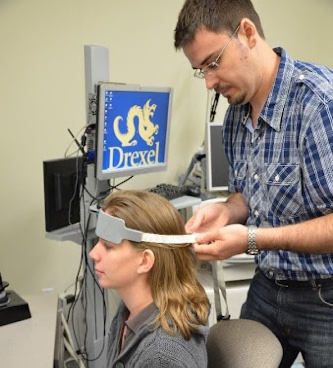
Real-time and close-loop EEG processing with the open-source OpenViBE platform: hands-on workshop
Monday, July 28, 2022 | 1:30 - 5 PM
Directors: Fabien Lotte PhD, Sébastien Rimbert PhD, Thomas Prampart PhD, Laurent Bougrain PhD
Scope
In many Neuroergonomics applications, such as Brain-Computer Interfaces (BCI) or NeuroFeedback (NF)-based systems, there is a need for real-time decoding of brain signals such as ElectroEncephaloGraphy (EEG). Such real-time decoding is then typically used to design closed-loop systems, e.g., to send mental commands to a computer application (e.g., active or reactive BCIs), to adapt an ongoing interaction to the users’ mental states (passive BCIs), or to provide feedback to users on their ongoing brain activity so that they can learn to regulate it (neurofeedback). While very useful and promising, designing closed-loop systems based on real-time decoding of brain signals is something that can be difficult, tedious and time consuming to do from scratch. In this hands-on workshop, we aim at showing that this task can be made substantially easier with appropriate tools. In particular, we aim at teaching our audience how to design closed-loop EEG decoding systems thanks to the free and open-source OpenViBE platform. OpenViBE indeed enables real-time acquisition, processing and visualization of brain signals (notably EEG), without the need for any programming, simply by visually assembling modules. It is also modular and can be extended with new functionalities using either C++, Matlab or Python programming. In these hands-on sessions, the audience will get to learn how to use OpenViBE to acquire, filter, visualize or decode EEG signals in real-time and use such decoding to interact with various applications.
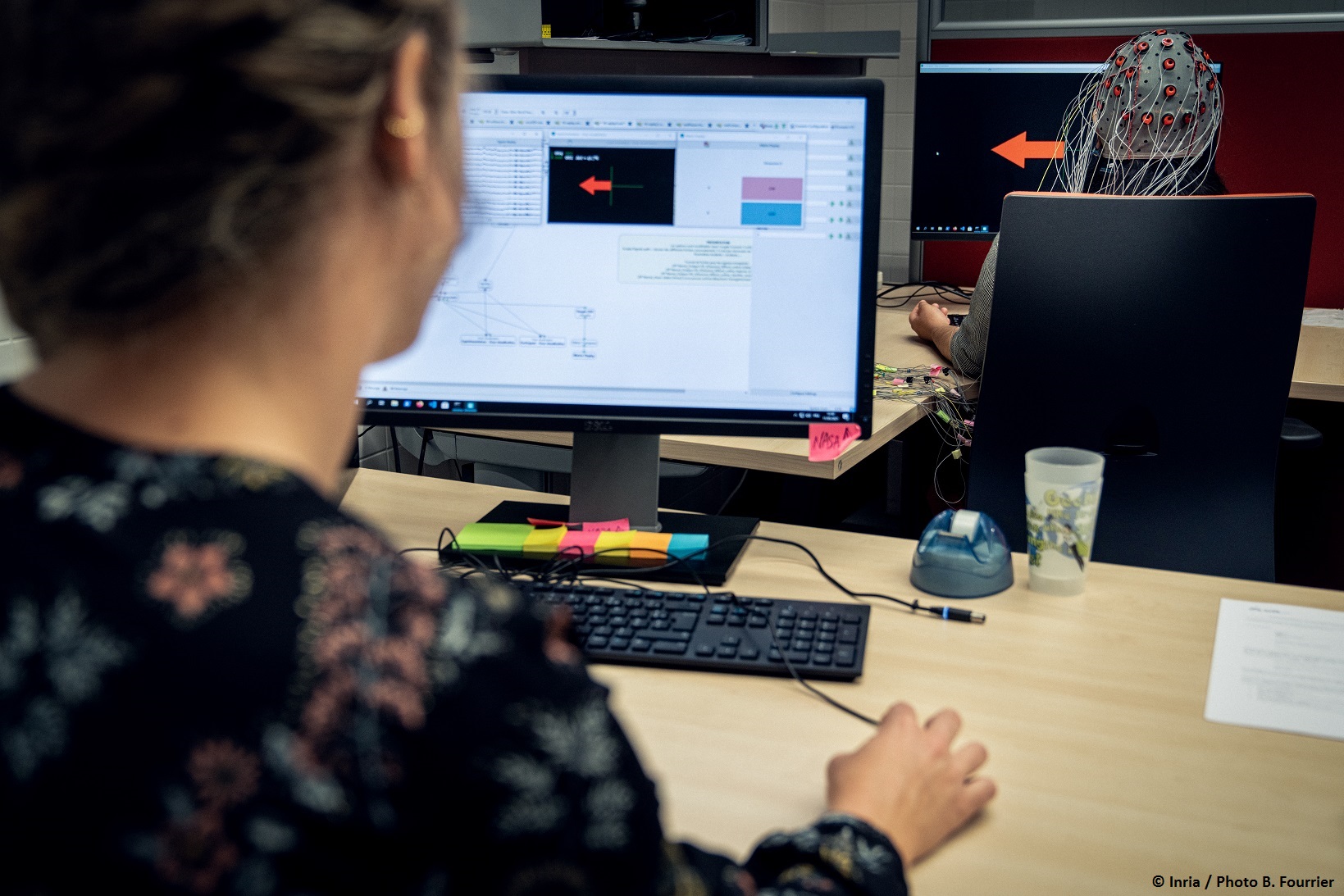
EEG Workshop: Data collection, preprocessing, analysis
Monday, August 1, 2022 | 9 AM - 12:30 PM
Directors: Simon Ladouce PhD, Adrian Curtin PhD, Hasan Ayaz PhD, Frederic Dehais PhD
Scope
Electroencephalogram (EEG) is a noninvasive and wearable brain-monitoring technology that captures cortical potential changes to monitor neural activity and associated mental states, cognitive and affective. New ultra-mobile EEG systems are enabling out of lab brain activity measurements in increasingly realistic settings such as car driving, plane piloting and walking outdoors. This one-day workshop is focused on introducing EEG, its physiological and physical principles, data collection and signal processing techniques as well as data analysis procedures. There will be both theory lectures as well hands-on practical sessions. The tutorial is aimed to get researchers started on EEG and designed for both beginner and intermediate researchers.
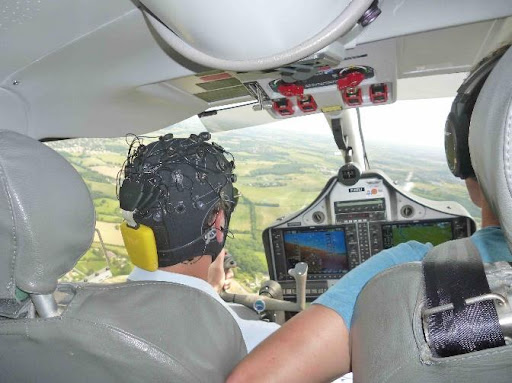
Pre- and Post- Conference Workshops attendance is open and free to all attendees. Separate workshop registration is not required, but some workshops are expected to have maximum allowed attendees. Therefore, to ensure your spot, please complete the workshop signup here.
Register for conference